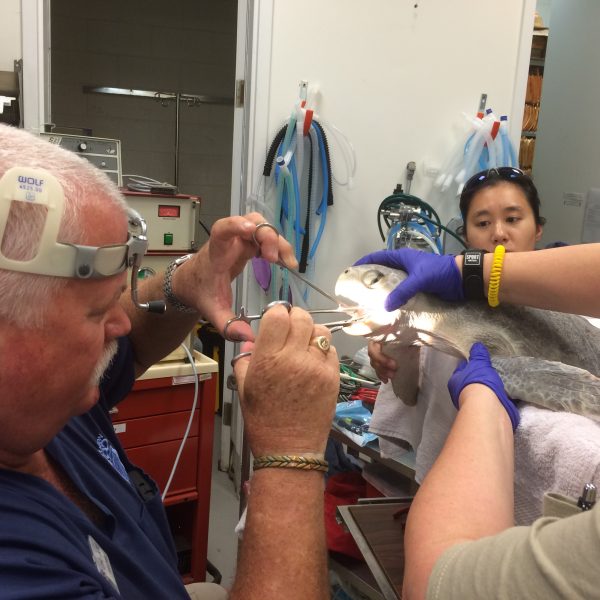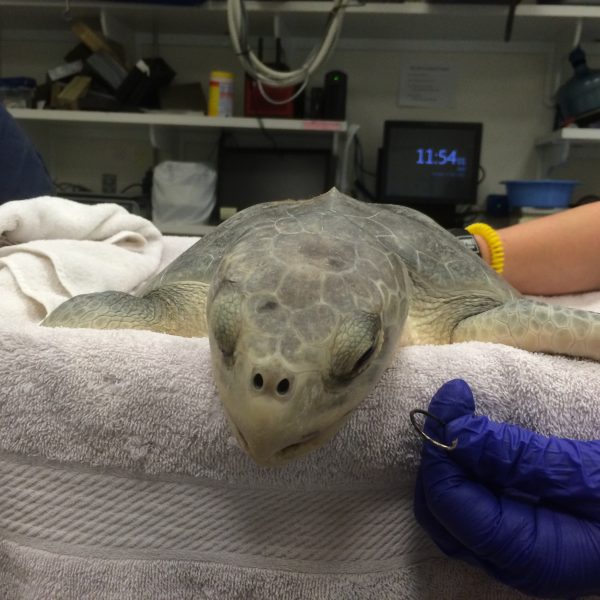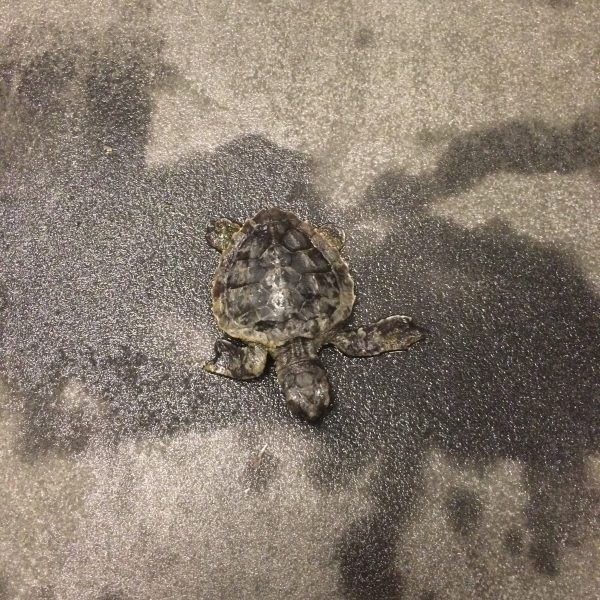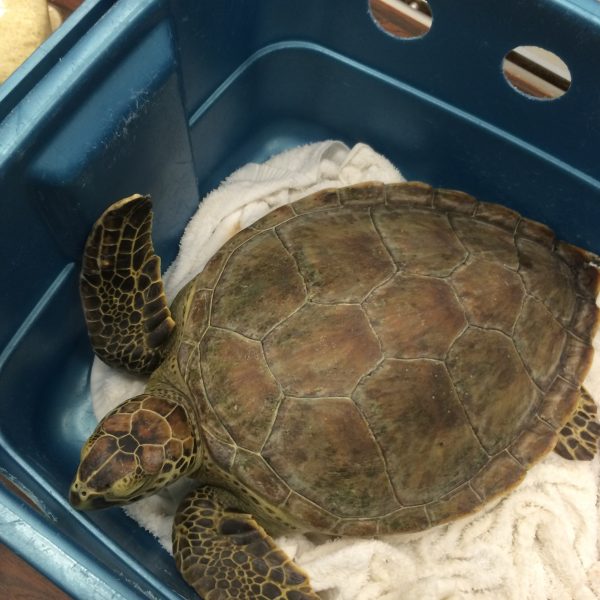6 Sea Turtles Receive Care at the Houston Zoo
Yesterday, our partners at NOAA (National Oceanic and Atmospheric Administration) brought 6 sea turtles to the Zoo’s veterinary clinic for medical care. 3 of the 6 sea turtles were loggerheads. 2 sea turtles were Kemp’s ridleys, and 1 sea turtle was a green. All turtles were radiographed and checked by Zoo veterinary staff.
One of the Kemp’s ridley sea turtles was accidentally caught on a fishing hook. Dr. Joe Flanagan removed the hook and the turtle will be rehabbed at NOAA’s facility in Galveston, and then released back into the wild. Unfortunately, this was the second time this summer that this turtle was caught by accident by a fishermen and reported to NOAA biologists! For this reason, it is important that all turtles are reported by calling 1-866-TURTLE-5, in the event that the turtle may have ingested several hooks, or have other medical issues that can’t be easily seen.


The second Kemp’s ridley that visited the Zoo was a post-hatchling, meaning it hatched from its egg just this summer! As you can see, at this age, sea turtles are tiny and can become prey to many different species living in or near the ocean. This Kemp’s ridley has a flipper injury and will be rehabilitated by NOAA biologists until it is healthy enough for release.

The green sea turtle who visited the Zoo was also accidentally caught, but did not require a hook removal. It was given x-rays and will be moved to NOAA Galveston for further care.

You can help our local sea turtle population by reporting injured, stranded, dead,or nesting sea turtles by calling 1-866-TURTLE-5. Another way to help is by reducing your use of plastic-bottles, bags, balloons, you name it! These items often end up in our ocean and sea turtles mistake them for food, like jellyfish. When ingested, sea turtles can become sick. If we replace plastic items with reusable items (bags and bottles) and avoid releasing balloons, we can protect sea turtles in their natural habitat! In addition, you can help by placing your discarded fishing line in recycling bins, rather than leaving it on the ground or in the water. This will help prevent animals like sea turtles and birds from becoming entangled in the line.
